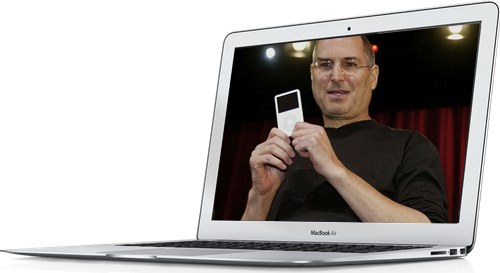
Or, for that matter, like 2011. Intel has been pushing ultrabooks as the next big thing in personal computers, specifically anorexically thin portables running Windows. According to fresh sales data from IDC, that isn’t working out, which is all about Apple once again inventing a new product category, popularizing it and then locking down the means of production with exclusive contracts and long-term supply deals. It worked with the iPod, then iPad and now the MacBook Air.
In 2011, the year that HP, RIM and Samsung all promised killer tablets, the iPad reaffirmed its dominance — no one could match Apple’s design brilliance, product quality, customer satisfaction and all-encompassing ecosystem. Yes, it’s “all about the apps,” but that conclusion only seems obvious because everything else “just works.”
Of course, it also doesn’t hurt that Apple also commands the tablet supply chain with a tight grip on key components and their production with long, multi-year contracts and targeted investments in manufacturing (i.e. panel and Flash memory). With its supply chain mastery, Apple disrupts competitors’ ability to create and deliver.
It’s the same magic Apple used to own the MP3 player market in 2005. In addition to iPod’s category defining style and, frankly, aggresive pricing, competitors couldn’t sell what they couldn’t make as Apple had locked down the supply of Flash memory — the key component.
In the nearer past, June to beg specific, Apple’s competitors complained that the MacBook Air maker had locked down supplies of Aluminum for chassis, as well as ultra-thin LCD panels. Without those things, it’s nigh impossible to build an ultrabook.
The ultrabook is dead! Love live the MacBook Air
Now, IDC data shows (via Macworld UK) that ultrabook sales have been disappointing at best, except for everyone but Apple. Intel, the backer of the ultrabook concept, had hoped sales would account for 40 percent of 2012’s portable total.
“The future really lies in 2013 and how well it jells with Windows 8,” said IDC analyst Jay Chou.
Considering, however, Microsoft’s heavy bet on ARM-based tablets, waiting for Windows 8 salvation might be wishful thinking.
Whatever the case, Apple pioneered the ultrabook with the MacBook Air and, well, here we go again. Like 2005 (iPod) and 2011 (iPad), Apple’s well on its way to dominating again with the same deft product design, delivery and supply chain manipulation…
What’s your take?
Via Fairer Platform

